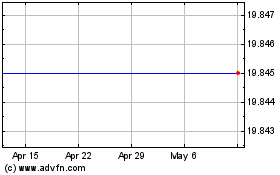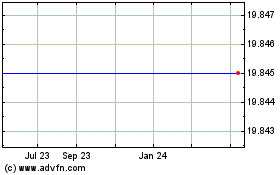By Sarah E. Needleman
Forget "game over."
Videogames are generating billions of dollars a year in revenue
by creating additional characters and stories that players can buy
long after a title's launch -- the equivalent of selling new
chapters to an already completed book.
"Add ons" are a bonanza for major game publishers: Last year,
world-wide spending on add-ons for PC and console games was $4.78
billion, nearly double 2012's haul, according to SuperData
Research, which projects $5.21 billion in 2017 spending.
"It's the most important trend we've seen over the past five
years," said Tim O'Shea, an analyst at Jefferies. "These are
incremental dollars that weren't being captured before."
Analysts say add-ons' popularity is a major reason stock prices
have more than tripled in the past five years at game giants
Activision Blizzard Inc., Electronic Arts Inc., Take-Two
Interactive Software Inc. and Ubisoft Entertainment SA.
There is a downside, though: With players adding on to their
favorite titles and playing them for longer stretches, executives
say, it becomes more difficult to produce new blockbusters that
stand out.
Here's how add-ons work: A person buys a game such as EA's "Star
Wars Battlefront," typically spending $60, then spends more for
extras, ranging from a 99-cent upgrade such as a special weapon to
a $40 "expansion pack" with new stories. Videogame publishers dole
out the add-ons at intervals, typically over a year, but may also
sell them as part of a package called a "season pass."
Electronic Arts, publisher of popular sports franchises such as
FIFA soccer and Madden football, last year generated $1.2 billion
in revenue from add-ons, including about $800 million from Ultimate
Team, a mode launched in 2009 that players use to create and
compete with fantasy-sports teams.
Previously, "people would typically buy one of our sports games
and play it for two or three months and then probably put it away,"
Blake J. Jorgensen, EA's finance chief, said at an investor
conference in February. "Today, people engage in Ultimate Team for
a full year."
In some cases, the payoff from games with longer lifespans can
provide cover for new titles that flopped, said Strauss Zelnick,
chief executive at Take-Two. Take-Two's "Battleborn" game didn't
meet the company's expectations when it launched in May last year.
Even so, revenue that quarter rose 13% despite no other major
releases. The company credited sales of digital add-ons for its
Grand Theft Auto games, which were released in 2013 and 2014.
Mr. Zelnick declined to say when a new Grand Theft Auto game
might launch. "There is a limited amount of mind share," he
said.
Add-ons are part of a shift in the industry toward "games as a
service" -- a play on the idea of "software as a service," where
companies such as Salesforce.com Inc. sell subscriptions to
software rather than boxed or downloaded programs that customers
pay for once.
Games as a service began more than a decade ago, when broadband
made it possible for ambitious games to offer persistently updated
worlds, such as Activision Blizzard's "World of Warcraft," a
subscription-based game that remains popular today.
More recently, the model has evolved to include services,
typically free, such as matching competitors by skill level and
contest hosting. The more time players spend in a game, the more
likely they will be to spend on add-ons, analysts say.
Persuading players to put more time and money into the same game
can have unexpected consequences.
Activision Blizzard recently said "Call of Duty: Infinite
Warfare" underperformed during the 2016 holiday quarter relative to
past installments of the hit series. Some fans didn't like the war
simulator's outer-space setting. But the company also said many
fans were still enjoying the previous year's "Black Ops III," which
got free and paid updates throughout the year.
It is a particular danger for franchises released annually. "If
users are actively engaged with older games, then there's not as
much of an incentive for them to buy the next new game," said Colin
Sebastian, an analyst at R.W. Baird.
A spokeswoman for Activision Blizzard declined to comment.
Still, consumers' aggressive adoption of games as a service is
lifting digital sales, which contribute about half of total revenue
at some big publishers. That's significant because digital goods
generate higher profit margins.
"It used to be that you would ship a game and everyone would go
on vacation for a month," said Chris Early, vice president of
digital publishing at Ubisoft, the company behind "Assassin's
Creed." Now, the company makes digital add-ons for just about all
its games.
Write to Sarah E. Needleman at sarah.needleman@wsj.com
(END) Dow Jones Newswires
April 19, 2017 07:14 ET (11:14 GMT)
Copyright (c) 2017 Dow Jones & Company, Inc.
Electronic Arts Inc. (MM) (NASDAQ:ERTS)
Historical Stock Chart
From Dec 2024 to Jan 2025

Electronic Arts Inc. (MM) (NASDAQ:ERTS)
Historical Stock Chart
From Jan 2024 to Jan 2025
